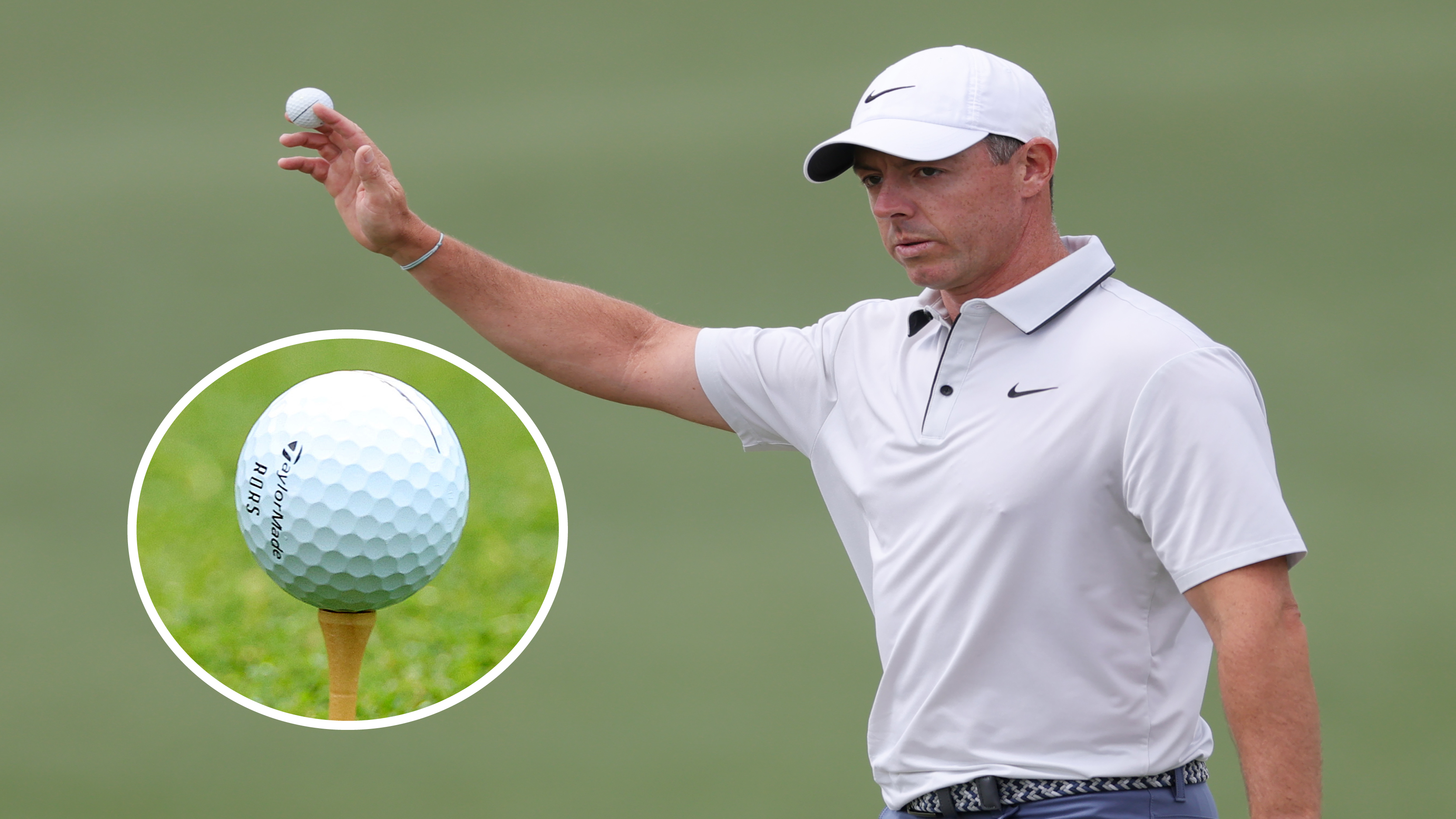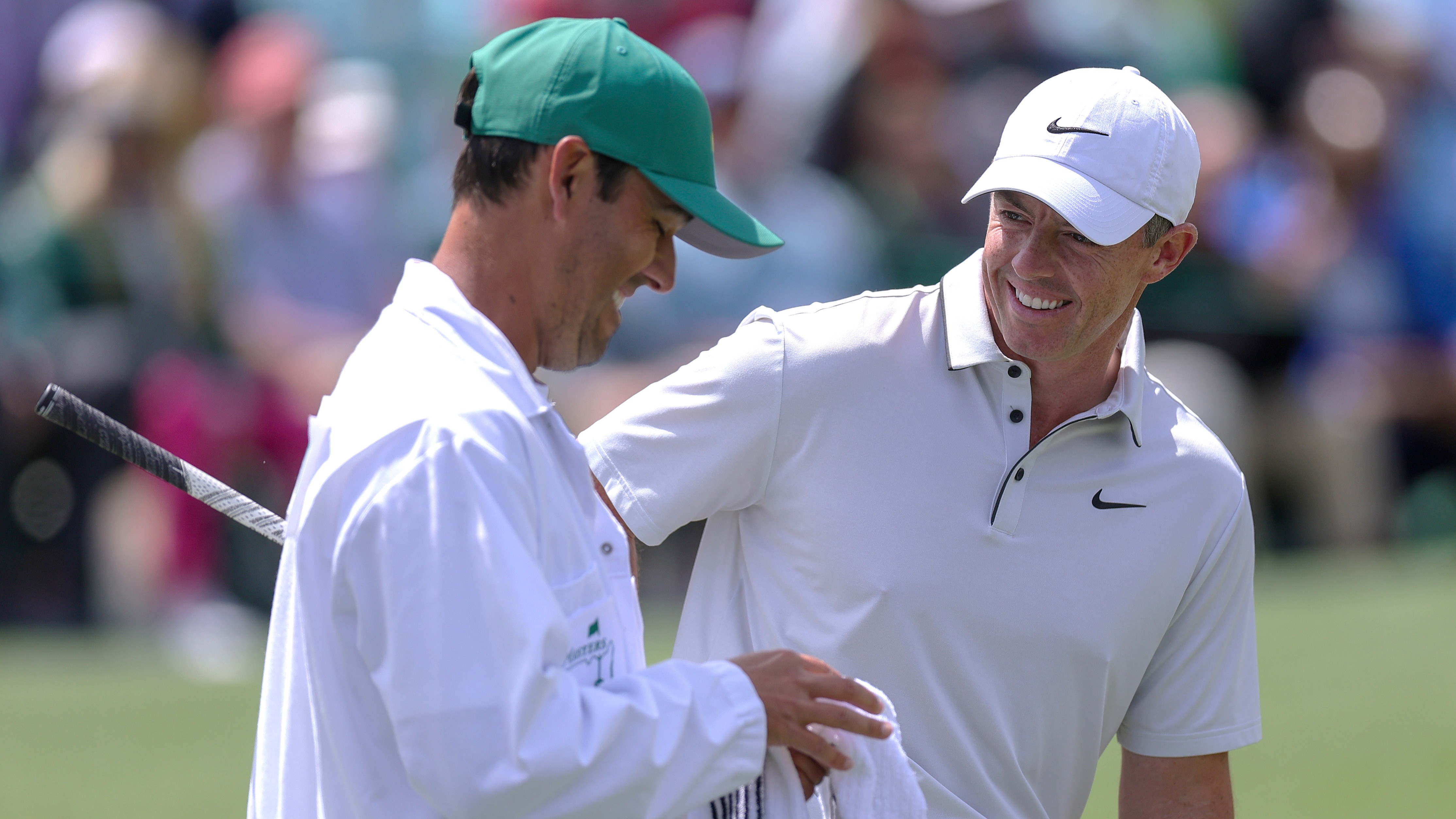Fergus Bisset: The forgotten
Andrew Coltart's retirement from competitive golf has made Fergus consider the fickle nature of the professional game.

Earlier this week Andrew Coltart announced his retirement from competitive golf at the age of 41. As courses have become longer and a greater emphasis placed on the requirement to send the ball huge distances from the tee, Coltart has found it increasingly difficult to compete - he's never been a "bomber." So he's decided to call it a day to focus on off-course projects.
Coltart played 491 events in 19 seasons on the European Tour. He finished in the top-10 on 61 occasions and scored two victories on the circuit. He also played in the 1999 Ryder Cup at Brookline. Coltart earned €5,733,120 during his time on Tour - that's an average of €301,743 per year!
I know a number of young players who are hoping to forge a playing career in golf over the next few years. Most of them would bite my hand off if I offered them a 19-year European Tour career with 61 top-10 finishes, earnings of almost €6 million and a Ryder Cup appearance.
Coltart deserves recognition for his playing career but in recent years the Scot has become better known for his work as a commentator/pundit on Radio Five Live and Sky (where he does and excellent job) than for his prowess on the fairways. As a player, Coltart is something of a forgotten man.
I think it's largely because of the sheer number of talented golfers Britain and Ireland has produced over the last 20 years. Compared to the achievements of Montgomerie, Faldo, Westwood, Harrington, Donald, McDowell, McIlroy et al. Coltart's accomplishments are fairly significantly overshadowed.
So Coltart's announcement has received little press coverage. In fact I can't even find it mentioned on the BBC. I guess it displays how, when blessed with an embarrassment of riches, Britain's golfing public has the luxury of being a little fickle. If one player fails to meet our exacting standards, it's no problem because there are many others waiting in the wings.
It made me think of some other British players whose form has dipped in recent years and how rapidly they've faded into the background as others have stepped in to steal the limelight.
Get the Golf Monthly Newsletter
Subscribe to the Golf Monthly newsletter to stay up to date with all the latest tour news, equipment news, reviews, head-to-heads and buyer’s guides from our team of experienced experts.
Nick Dougherty - In 2005, he won the Caltex Masters in Singapore aged just 23. Through the middle part of the last decade he was one of Britain's brightest young stars, winning three more tournaments and twice finishing inside the top-20 on the money list. His name was often mentioned in the same sentence as Donald, Casey and McDowell as the future of British golf. As recently as 2009 he was in the winner's circle after claiming the BMW International Open.
But over the last two years, Dougherty has totally lost his form. Last season he played 34 events on the European Tour and made only one cut, earning just €10,600. His exemptions have run out for 2012 and he failed to earn his card at last December's Q-School. In my clubhouse he's now referred to as "Mr Di Dougherty" when a couple of years ago she would have been "Mrs Nick Dougherty"... So damned fickle. Oliver Wilson - He turned pro in 2003 and made steady progress over the next few seasons. In 2008 he posted four second place finishes on the European Tour and made Nick Faldo's Ryder Cup side that narrowly lost out at Valhalla. In the 2009 season he earned more than €2 million, lost a playoff for the HSBC Champions to Sergio Garcia and was seventh in the Race to Dubai.
But last year Wilson was a lowly 130th on the Race to Dubai, his best finish a 12th place in Qatar. He's dropped to 341st on the Official World Golf Ranking and largely out of the golfing public's conscience.
David Howell - Through the mid part of the 00's, Howell was one of Britain's very best players. In June 2006 he broke into the top-10 on the Official World Ranking, the best placed Brit at the time. That season he won both the HSBC Champions and the BMW PGA Championship. Regarded by many as the world's best putter, he twice played on the winning side in the Ryder Cup - 2004 and 2006.
Unfortunately, a succession of injuries hampered his career over the proceeding seasons. Most golf fans now picture him sitting opposite David Livingstone on the Sky TV couch rather than striding the fairways.
It should be pointed out that Howell has showed signs of returning to form over the last couple of seasons and, with full playing privileges again in 2012, here's hoping we see him lofting trophies before the year is out. Ross Fisher - OK, he's not totally disappeared off the radar, but as other Brits have stepped up their games, Fisher has gone in the wrong direction - just 52nd on the 2011 Race to Duabi. In 2008 and 2009 he finished 6th then 4th on the European Tour money list. In 2009 he won the Volvo Matchplay and looked incredibly impressive in so doing. With prodigious length off the tee and a supreme iron game he looked a world-beater.
I think Fisher will come back to the top of the game and could well be a future Major champion, but I use him as an example here because of how quickly he has become a little forgotten. Donald, McIlroy and Clarke were the stories of 2011 and Fisher is down to 100th on the Official World Golf Ranking - he's only the 16th placed Brit. To put that in perspective, in tennis the 16th placed Brit on the world ranking is Alexander Slabinsky at 640th... Quite.
And that's the thing. In golf we have 16 players in the top-100 in the World: that's incredible. Are there any other truly international sports where the UK can boast such representation at the very top level?
With such a plethora of successful British players for the media to focus on, I guess it's little wonder that those who lose form tend to drop off the back pages and face being consigned to the dustbin of sporting history.
I think we should try and remember those men. The players who've contributed so much to professional golf's rich tapestry, but whose names are now seldom heard. Here's to Andrew Coltart, to Paul Way, to Steven Richardson, to Ronan Rafferty, David Gilford, Jamie Spence, Mark Mouland, Raymond Russell, Russell Claydon, Jim Payne and to all those others I can't remember.

Fergus is Golf Monthly's resident expert on the history of the game and has written extensively on that subject. He has also worked with Golf Monthly to produce a podcast series. Called 18 Majors: The Golf History Show it offers new and in-depth perspectives on some of the most important moments in golf's long history. You can find all the details about it here.
He is a golf obsessive and 1-handicapper. Growing up in the North East of Scotland, golf runs through his veins and his passion for the sport was bolstered during his time at St Andrews university studying history. He went on to earn a post graduate diploma from the London School of Journalism. Fergus has worked for Golf Monthly since 2004 and has written two books on the game; "Great Golf Debates" together with Jezz Ellwood of Golf Monthly and the history section of "The Ultimate Golf Book" together with Neil Tappin , also of Golf Monthly.
Fergus once shanked a ball from just over Granny Clark's Wynd on the 18th of the Old Course that struck the St Andrews Golf Club and rebounded into the Valley of Sin, from where he saved par. Who says there's no golfing god?
-
 Could This 'Stumbled Upon' Equipment Switch Finally Land Rory McIlroy the Grand Slam?
Could This 'Stumbled Upon' Equipment Switch Finally Land Rory McIlroy the Grand Slam?Rory McIlroy made a golf ball change earlier this season that has reignited his wedge play and it could be about to pay off in the most dramatic possible way…
By Joe Ferguson Published
-
 The Masters Final Round: TV Coverage, Live Streams, Start Times As Rory McIlroy Battles Bryson DeChambeau And History
The Masters Final Round: TV Coverage, Live Streams, Start Times As Rory McIlroy Battles Bryson DeChambeau And HistoryAll the info on live streams, TV broadcasts, and free coverage of one of the most hotly anticipated final days of any Major as McIlroy battles with DeChambeau
By Patrick Fletcher Published